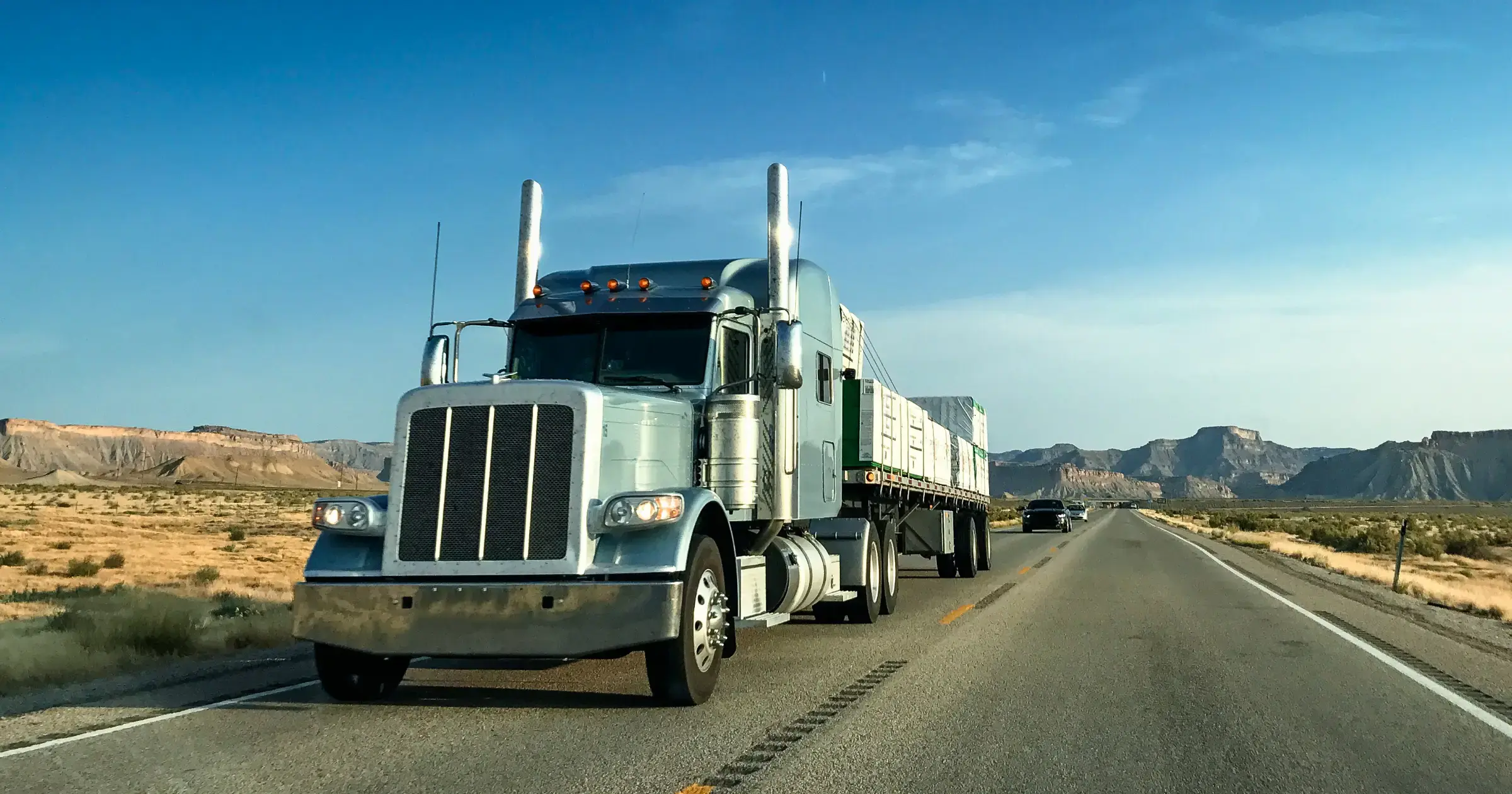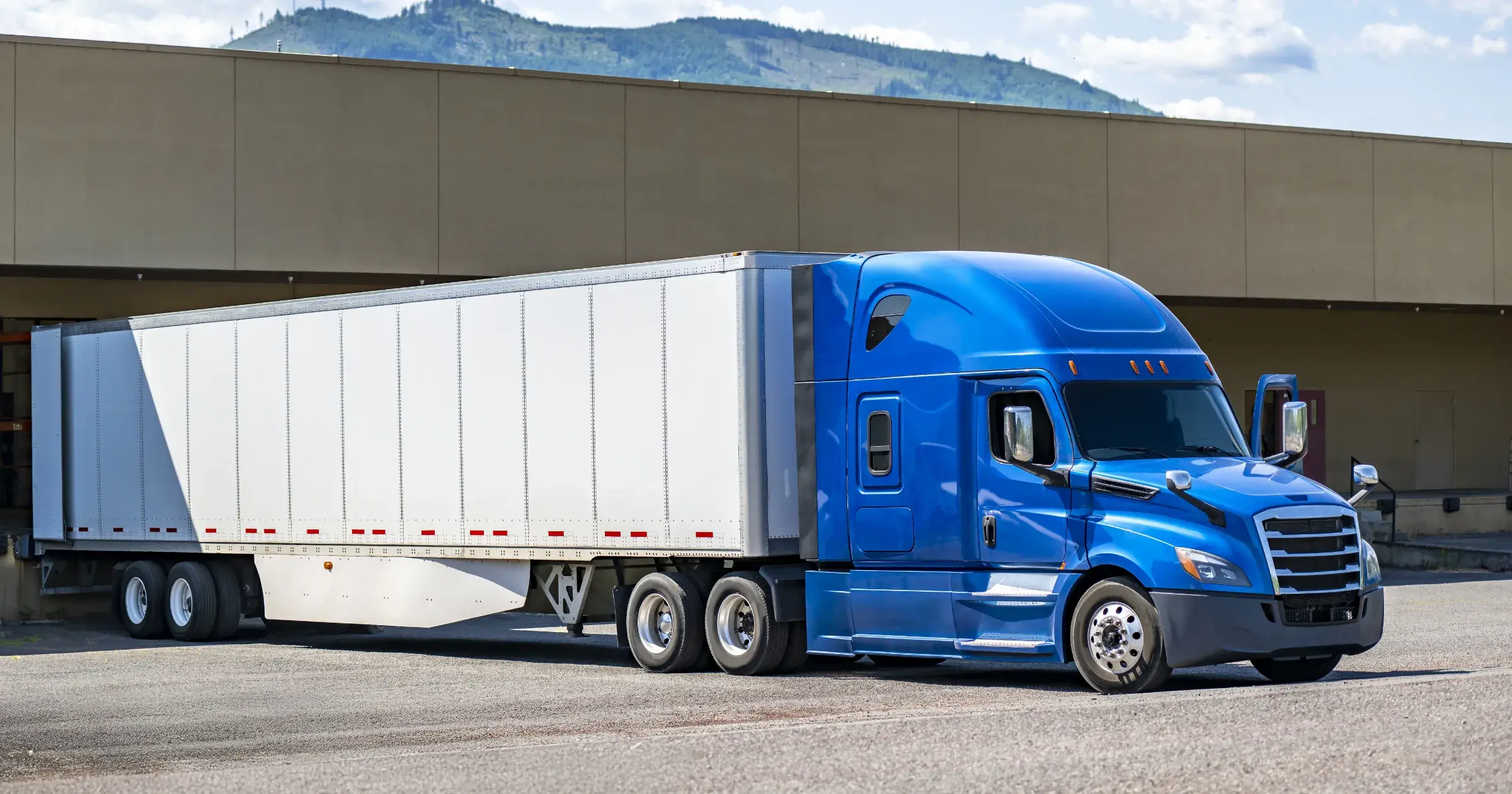Why Risk Transfer is Essential to a Motor Carrier

Trucking is a bustling industry, where the movement of goods is constant and motor carriers are responsible for delivering freight efficiently and on time. These factors naturally create risks and can expose motor carriers to potential losses. Business interruptions associated with vehicle accidents, workplace injuries, and roadside inspections are often top of mind, but they represent only part of the picture when it comes to calculating the total cost of risk.
Generally, the total cost of risk involves four key areas: risk control costs, administrative costs, retained losses, and transfer costs. The focus of this article is on risk transfer, meaning the transfer of a specific risk from one party to another. Insurance is the most common form of risk transfer, so let’s examine three compelling reasons insurance is an essential part of every motor carrier’s overall risk management strategy.

PROTECTION AGAINST ACCIDENTS AND LIABILITY
The consequences can be severe when a commercial motor vehicle is involved in an accident. Insurance provides a crucial layer of protection for trucking companies in such scenarios. Liability insurance is particularly important for trucking companies. It may cover costs associated with bodily injury and property damage that the company may be responsible for in an accident. This may include medical expenses, vehicle repair or replacement costs, and legal fees. Without liability insurance, a trucking company could face financial ruin from a single accident-related lawsuit.
Additionally, insurance can cover other types of liability, such as environmental liability. If a truck carrying hazardous materials is involved in an accident that results in pollution, the costs of cleanup and environmental damage can be astronomical. Insurance helps mitigate these risks and helps to ensure that the company can continue operating even in the face of a significant liability claim.
COMPLIANCE WITH LEGAL REQUIREMENTS
Operating a trucking company without insurance is not only financially risky but also illegal in most jurisdictions. Federal and state laws require commercial trucking companies to carry a minimum level of insurance coverage. Failure to comply with these requirements can result in hefty fines, the suspension of operating licenses, or even the shutdown of the company.
The Federal Motor Carrier Safety Administration (FMCSA) sets minimum insurance requirements for trucking companies based on the type of cargo being transported. According to 49 CFR Part 387.9, motor carriers transporting non-hazardous goods must have a minimum of $750,000 in liability insurance, while those meeting certain carriage and commodity specifications, must be insured up to a minimum of $5,000,000 in coverage. Compliance with these requirements is non-negotiable for trucking companies.
Furthermore, insurance requirements can vary from state to state, so it’s essential for trucking companies to stay informed about the specific requirements in each jurisdiction where they operate.
“Without liability insurance, a trucking company could face financial ruin from a single accident-related lawsuit.”
PROTECTION AGAINST UNFORESEEN EVENTS
Motor carriers are susceptible to a variety of risks beyond vehicle accidents and liability claims. Workrelated injuries, natural disasters, vandalism, and equipment breakdowns are just a few examples of unforeseen events that can disrupt operations and cause financial losses for trucking companies. Insurance can help provide protection against these risks, allowing motor carriers to recover and resume operations more quickly.
Damaged, spoiled, and stolen freight are additional risks trucking companies must contend with, but Great West’s cargo insurance can help protect trucking companies against the loss or damage of goods being transported. This type of insurance can be particularly valuable for companies transporting highvalue or sensitive cargo. Without insurance, the cost of replacing this freight could be prohibitively expensive.
Additionally, insurance may cover the cost of repairing or replacing trucks and equipment that are damaged or destroyed in unforeseen events. This is crucial for keeping operations running smoothly and minimizing downtime. By having insurance coverage for these risks, trucking companies can protect their assets and maintain their financial stability.
As a bonus, consider using the risk control tools provided by Great West. From our award-winning Safety Talk publication and the online Learning Library to our in-person seminars and decades of experience our risk control representatives bring to the table, Great West’s safety products and services can help you manage your risk more effectively.
Note: These lists are not intended to be all-inclusive.
CALL TO ACTION
- Review your operational risks and ensure you have sufficient insurance coverage.
The information in this article is provided as a courtesy of Great West Casualty Company and is part of the Value-Driven® Company program. Value-Driven Company was created to help educate and inform insureds so they can make better decisions, build a culture that values safety, and manage risk more effectively. To see what additional resources Great West Casualty Company can provide for its insureds, please contact your safety representative, or click below to find an agent.
Why Risk Transfer is Essential to a Motor Carrier
Trucking is a bustling industry, where the movement of goods is constant and motor carriers are responsible for delivering freight efficiently and on time. These factors naturally create risks and can expose...
Continue Reading
Why investing in risk control is important
There are risks inherent to trucking; managing those risks effectively is not free. Motor carriers understand this fact very well because the effort required to avoid, prevent, and mitigate losses...
Continue Reading
Total Cost of Risk: Understanding Administrative Costs
In the Summer 2024 edition of Safety Talk, we began discussing the total cost of risk, and the four areas motor carriers should consider when developing a risk management strategy...
Continue Reading
© Great West Casualty Company 2024. The material in this publication is the property of Great West Casualty Company unless otherwise noted and may not be reproduced without its written consent by any person other than a current insured of Great West Casualty Company for business purposes. Insured should attribute use as follows: “© Great West Casualty Company 2018. Used with permission by Great West Casualty Company.”
This material is intended to be a broad overview of the subject matter and is provided for informational purposes only. Great West Casualty Company does not provide legal advice to its insureds, nor does it advise insureds on employment-related issues. Therefore, the subject matter is not intended to serve as legal or employment advice for any issue(s) that may arise in the operations of its insureds. Legal advice should always be sought from the insured’s legal counsel. Great West Casualty Company shall have neither liability nor responsibility to any person or entity with respect to any loss, action, or inaction alleged to be caused directly or indirectly as a result of the information contained herein.
.







